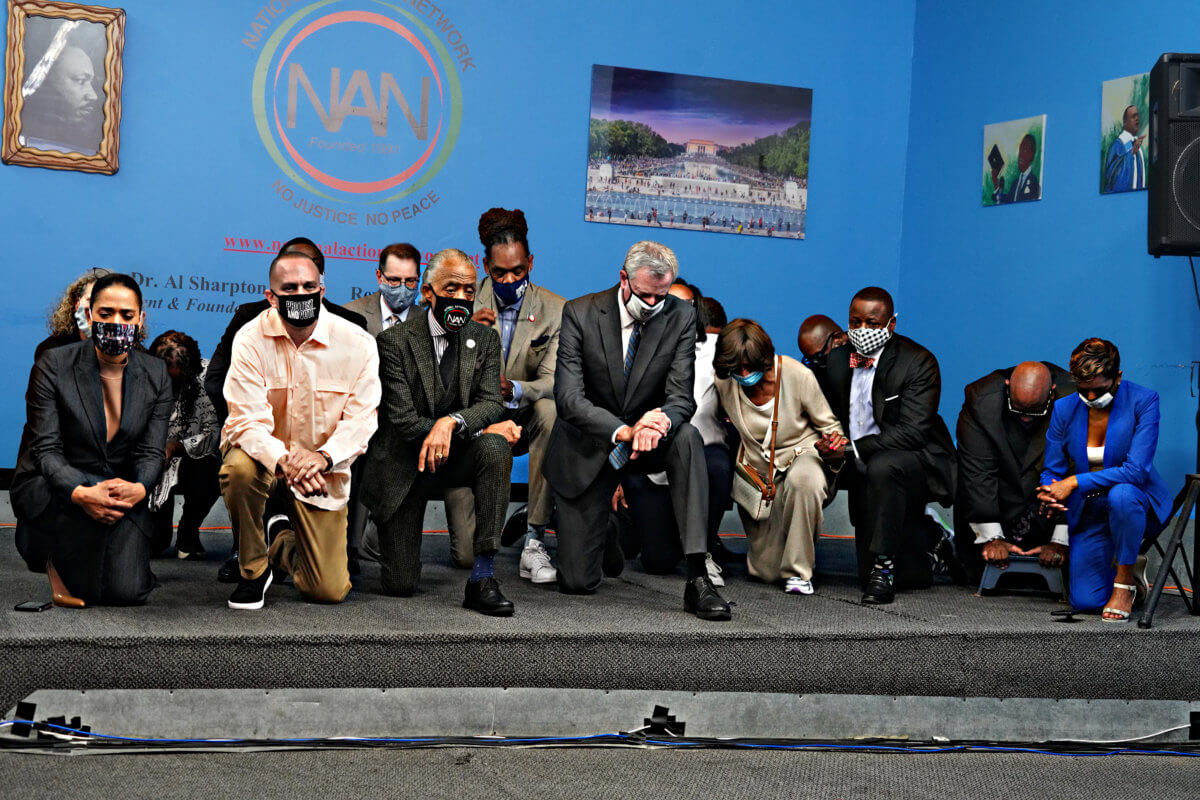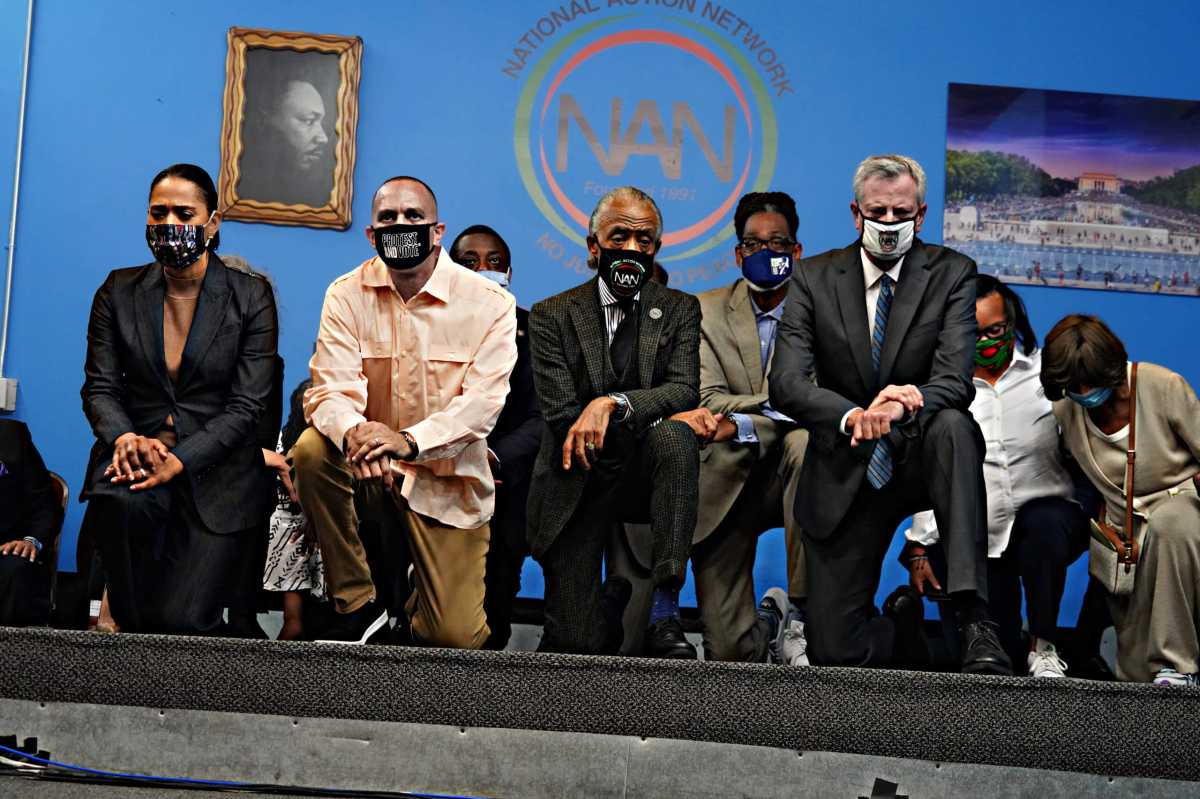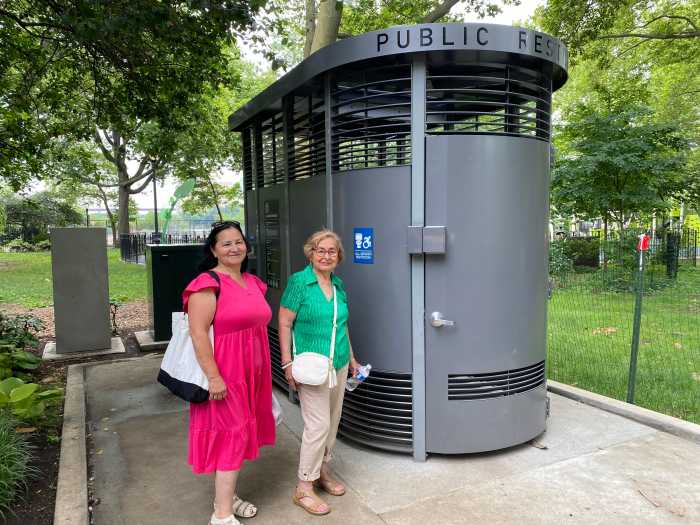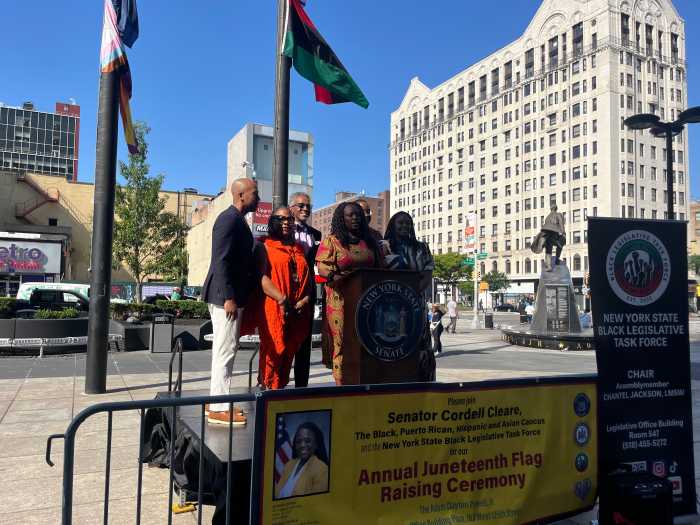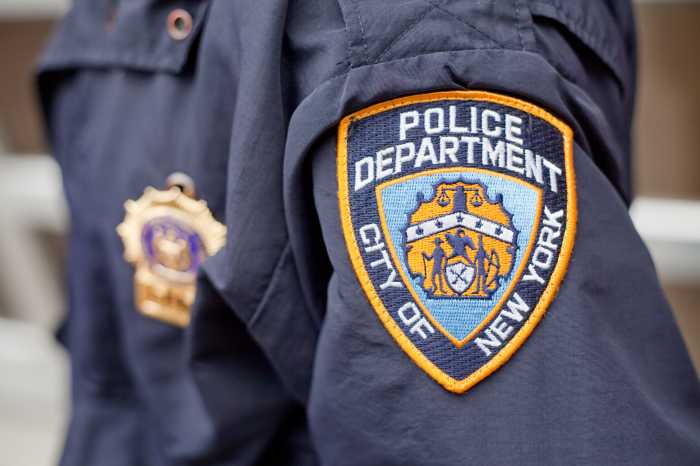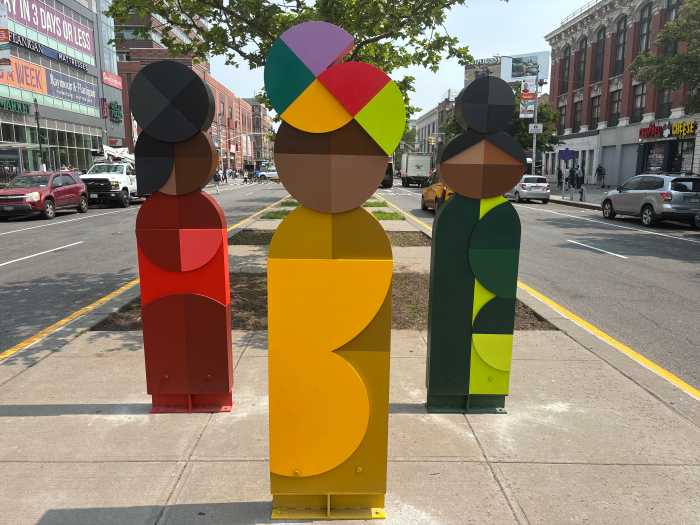A year after George Floyd’s life was taken from him under the weight of a Minneapolis police officer’s knee for nine minutes and 22 seconds, New Yorkers spent time on Tuesday to pause and reflect on Floyd’s death and its impact on the movement for justice.
During a ceremony at the National Action Network’s Harlem home base, Mayor Bill de Blasio joined Reverend Al Sharpton and other officials in taking a knee for nine minutes and 22 seconds to reflect on the horrific incident which was caught on camera and sparked a national outcry.
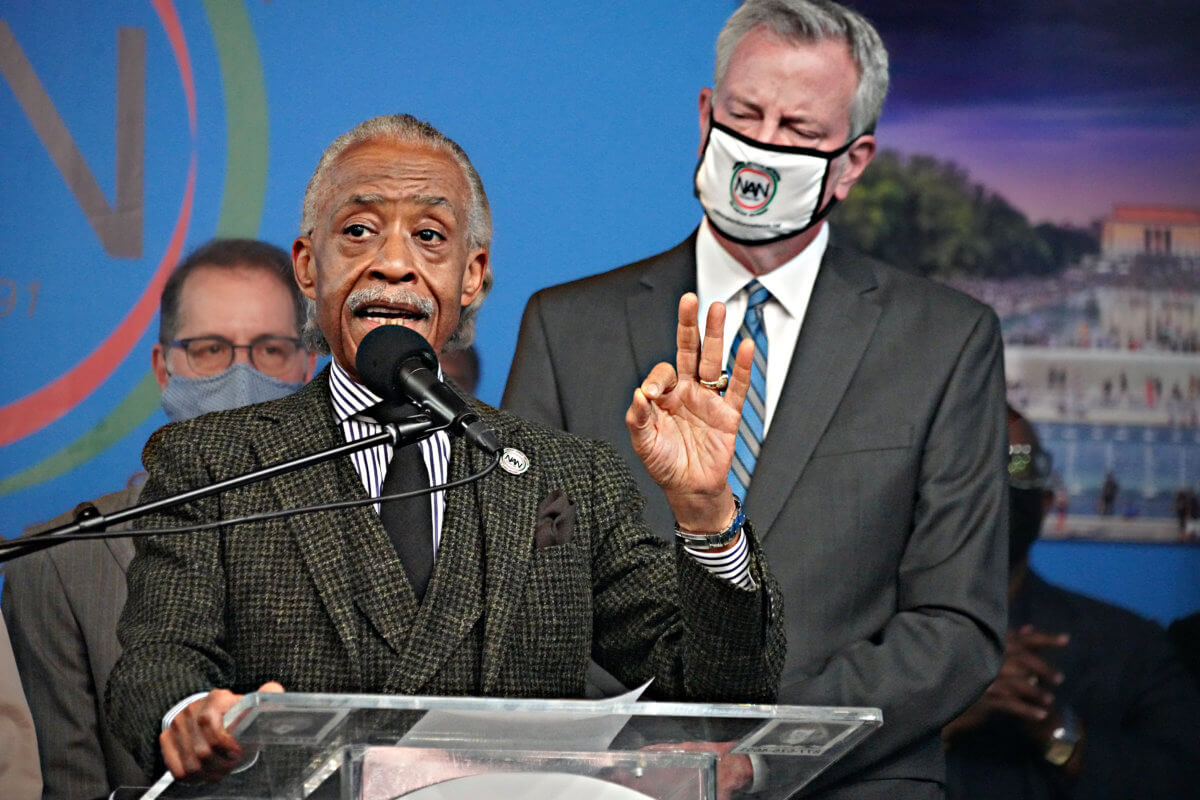
“When he put his knee on his neck, he put a knee on police brutality,” Sharpton said, describing that Floyd’s death will not be in vain if Congress passes the George Floyd Justice in Policing Act. This police reform bill looks to end law enforcement techniques such as chokeholds on a federal level.
The silence spoke volumes as elected leaders joined Sharpton in kneeling for the same amount of time that Chauvin kneeled on Floyd’s neck. This symbol was intended to display the need for police reform and remind the country that Floyd’s death has been the catalyst for change.
“As we took that knee, imagine how long that was on a human being’s neck. He never switched knees, he just dug in. It’s time we correct policing in this country,” Sharpton said after rising to his feet, calling Floyd’s death a modern-day lynching.
The Black Lives Matter movement has often been compared to the 1960s Civil Rights protests, and Sharpton emphasized that the death of Emmett Till led to the 1964 Civil Rights Act.
Sharpton pointed out that Floyd’s death is one of the few criminal cases that has seen the conviction of murder charges against an officer. He said that legislation must follow to ensure that all states are protected from something like this from happening again.
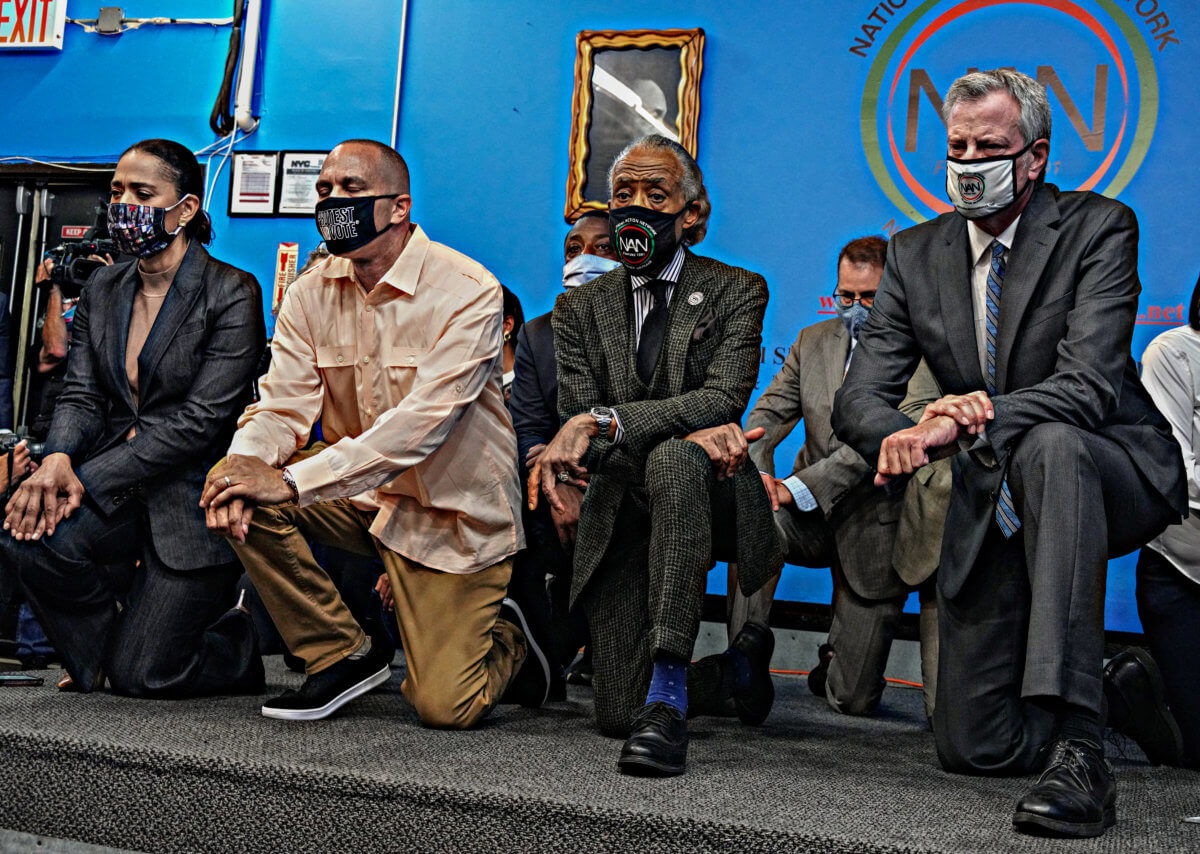
“George Floyd’s murder energized and ignited a movement all over the globe,” Sharpton said, describing the marches and rallies as intergenerational and multiracial adding, “You cannot have a movement that is in any way shape or form progressively successful if there is no legislation.”
The service looked back at over a year of protests, demanding an end to systematic racism and injustice. Attendees underscored that what they are calling for is not anti-police—it is for police reform and accountability.
Sharpton underscored that just seven years ago Eric Garner was killed by excessive police force, which led to the legislation banning chokeholds in New York City. Garner uttered the words, “I can’t breathe” 11 times, and George Floyd pleaded with the same sentence 27 times before dying on May 25, 2020.
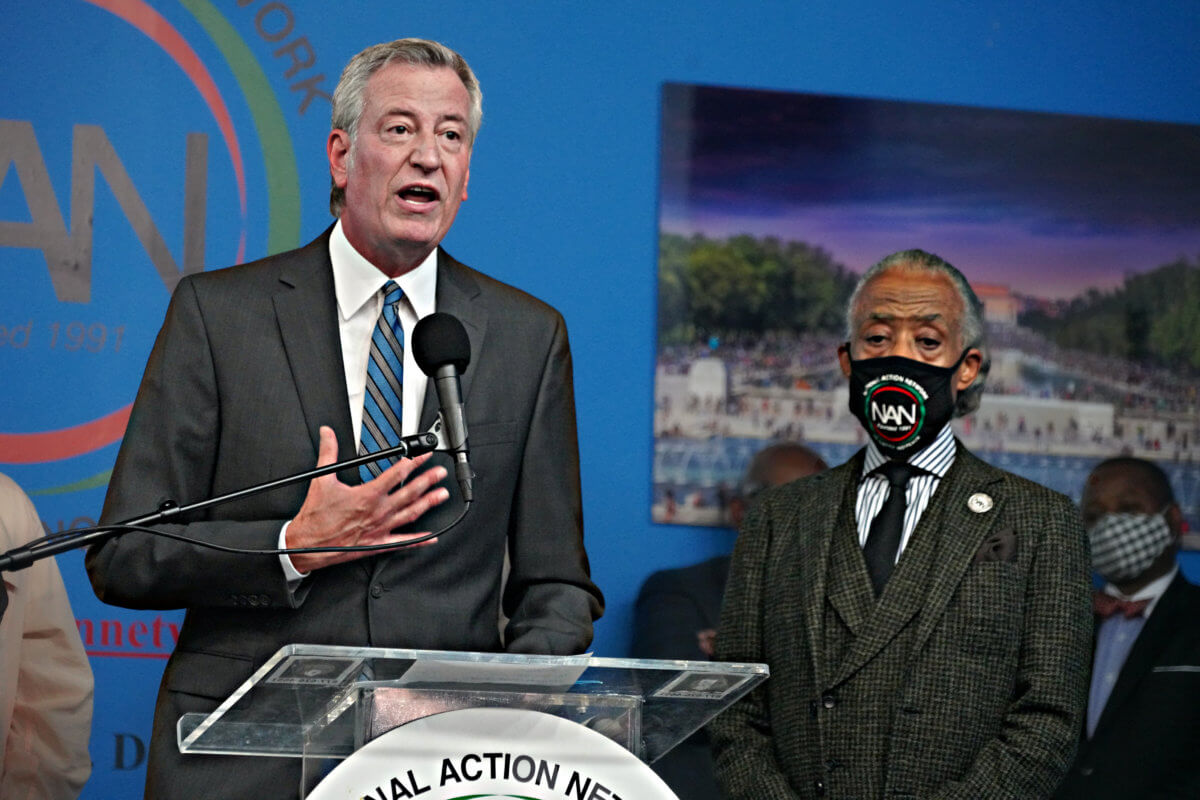
As New York City changed the laws to protect against the use of excessive force by the NYPD, like chokeholds, de Blasio and Sharpton are imploring Congress to pass the George Floyd Justice in Policing Act.
“We saw a murder, let’s be clear why there is so much anger. We saw a murder committed by someone who is supposed to exemplify law. He was supposed to protect. He took an innocent life and everything we have been told is backwards and I understand anyone who felt betrayed in that moment because the Reverend is right, how do you forget someone’s humanity,” de Blasio said.
As each elected official took turns expressing their disgust with the brutal murder that occurred one year ago, they also stated that the fight for justice is far from over.
